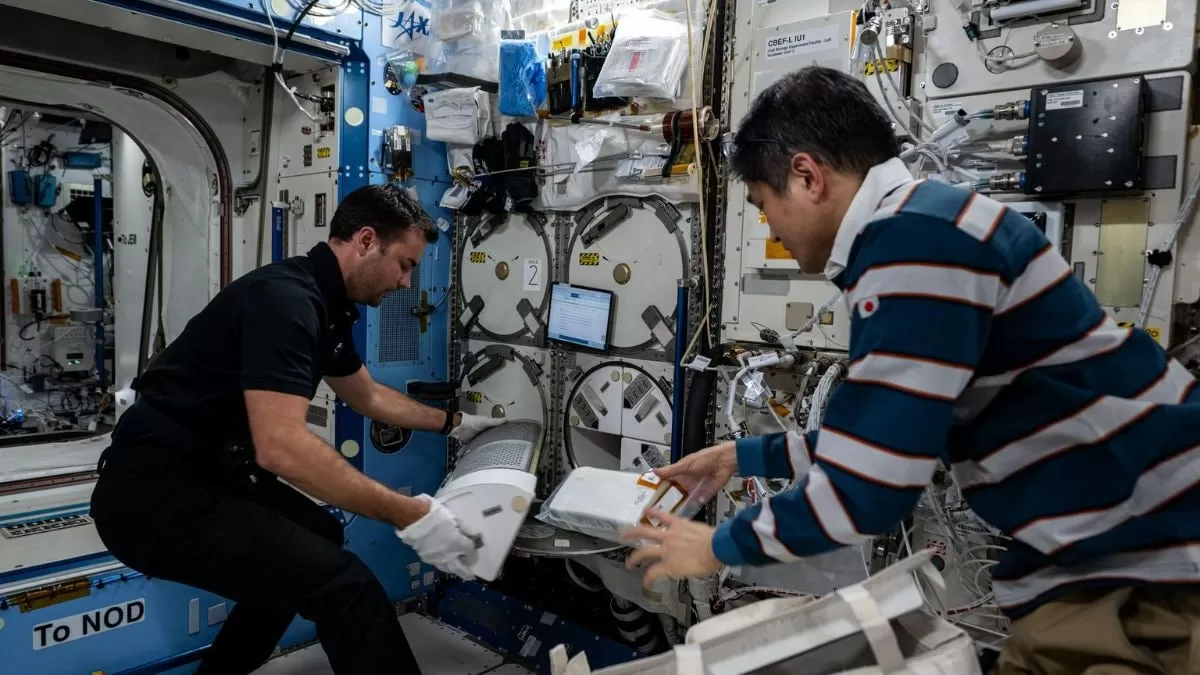Crews aboard the International Space Station (ISS) have been hard at work conducting crucial biomedical research focused on immunity and muscle function in space. This research is essential in preparing humans for long-term space travel, and the recent activities carried out by JAXA’s Takuya Onishi and the Ax-4 astronauts have marked another significant step forward in this endeavor.
Onishi and his fellow astronauts have been contributing to ongoing health studies, which are vital in understanding the effects of long-term space travel on the human body. These studies are crucial in developing countermeasures to mitigate any potential health risks that astronauts may face during extended missions in space.
One of the main areas of focus for the crew has been immunity. In space, the human body is exposed to a unique environment that can weaken the immune system. This is due to factors such as microgravity, radiation, and the confined living conditions on the ISS. By studying the immune system in space, scientists can gain a better understanding of how it functions and how it can be strengthened to protect astronauts during long-term missions.
In addition to immunity, the crew has also been conducting research on muscle function in space. Living in microgravity can cause muscle atrophy and loss of bone density, which can have severe consequences for astronauts. By studying the effects of microgravity on muscle function, scientists can develop exercise and nutrition plans to help astronauts maintain their physical health during extended stays in space.
The crew’s efforts have been supported by engineers who have been busy completing maintenance tasks on the ISS. These tasks are essential in ensuring the smooth operation of the station and the safety of the crew. They have also been offloading cargo from the recently arrived Progress 92 spacecraft, which brought vital supplies and equipment to the ISS.
The successful completion of these activities is a testament to the hard work and dedication of the crew and the ground support team. It is also a reminder of the international collaboration that takes place on the ISS. The Ax-4 astronauts, who come from different countries, have been working together seamlessly to achieve their common goal of advancing human space exploration.
The research and activities carried out by the crew aboard the ISS are not only crucial for preparing humans for long-term space travel but also have significant implications for life on Earth. The knowledge gained from studying the effects of microgravity on the human body can have applications in healthcare and medicine, benefiting people all over the world.
As we continue to push the boundaries of space exploration, it is essential to remember the importance of biomedical research in ensuring the safety and well-being of astronauts. The work being done on the ISS is paving the way for future missions to the Moon, Mars, and beyond. It is a testament to the human spirit of exploration and our determination to overcome challenges and reach new frontiers.
In conclusion, the recent activities carried out by the crew aboard the ISS have been a resounding success. The research on immunity and muscle function, along with the completion of maintenance tasks and cargo offloading, are all crucial steps in preparing humans for long-term space travel. The dedication and hard work of the crew and the support team have brought us one step closer to our ultimate goal of exploring the vastness of space.

